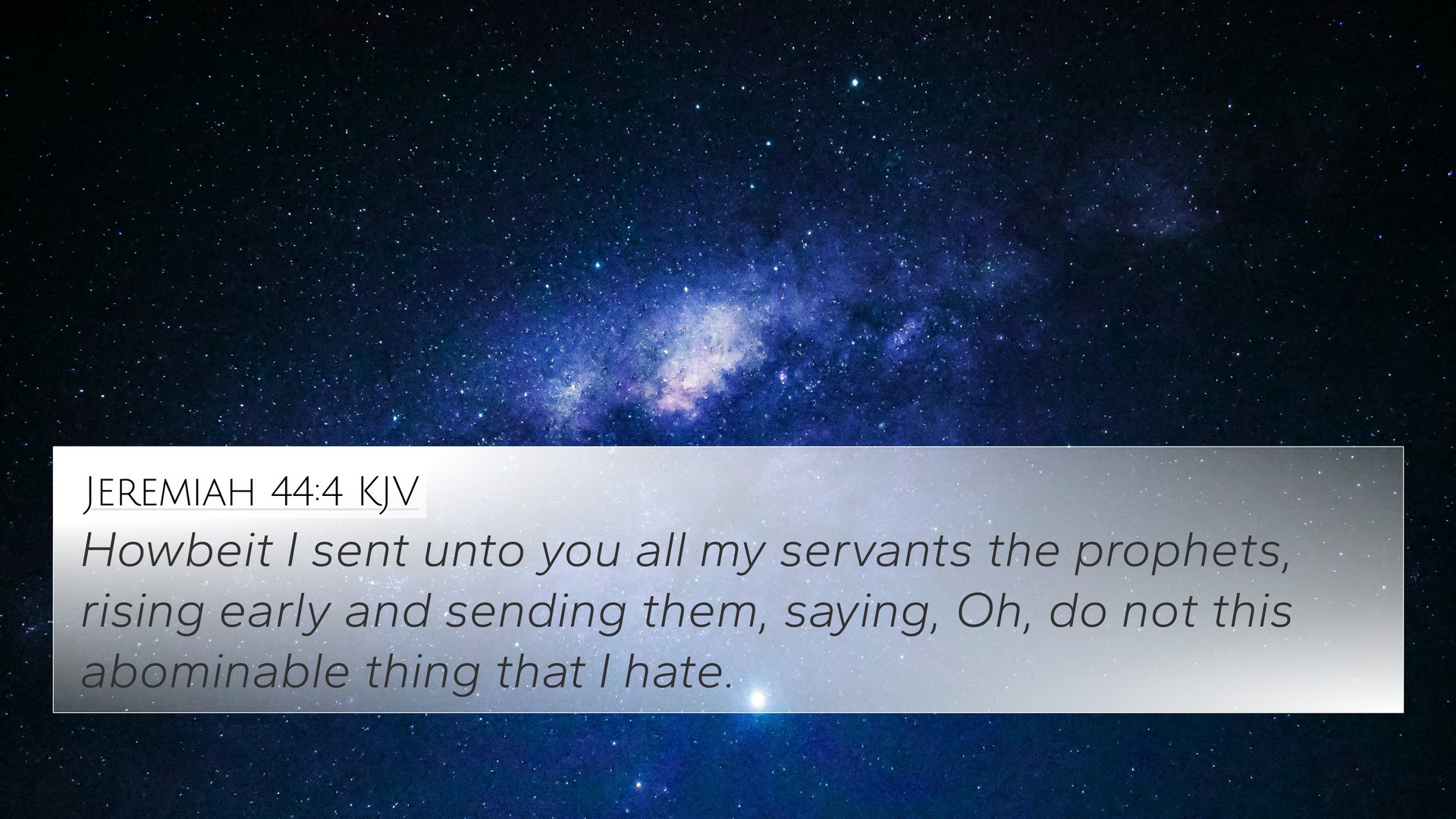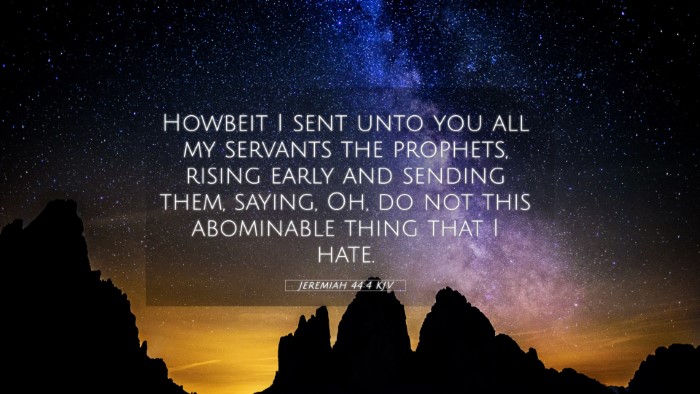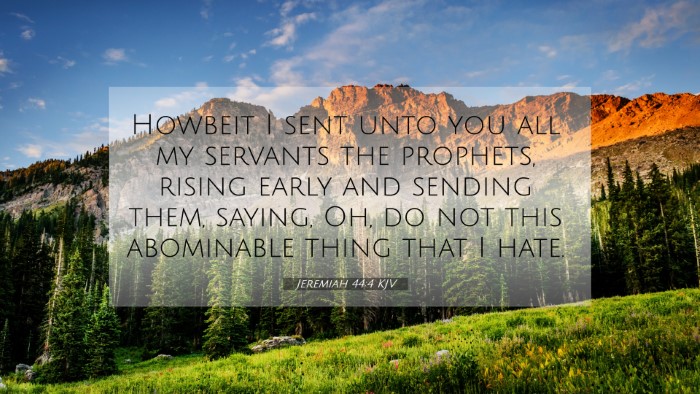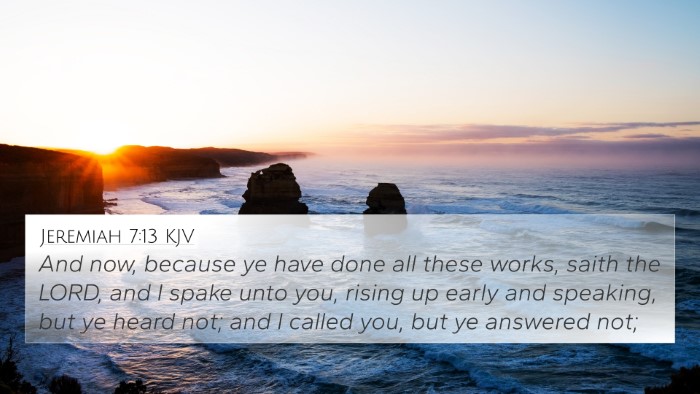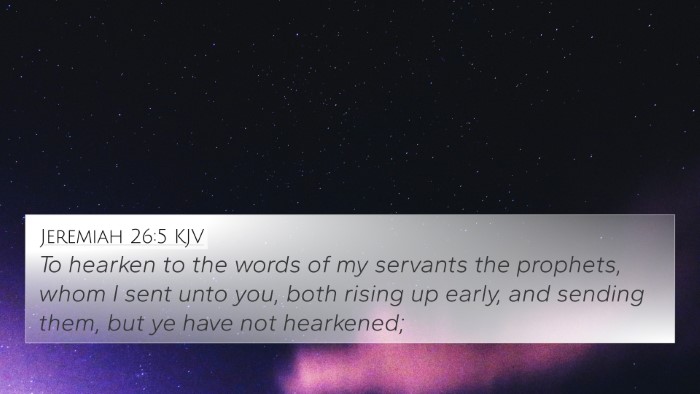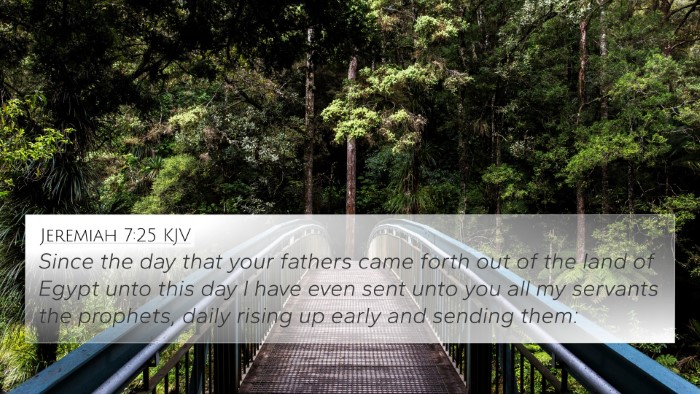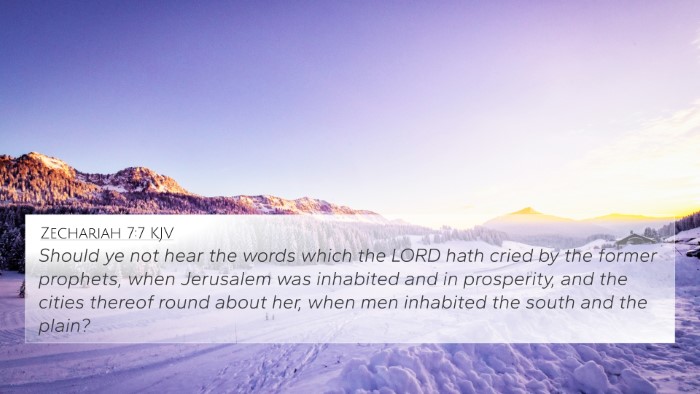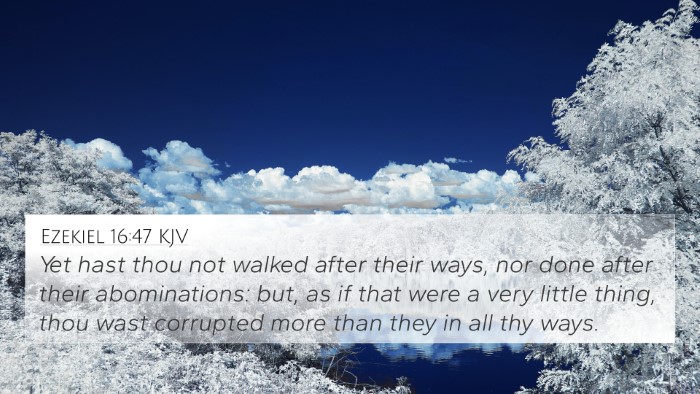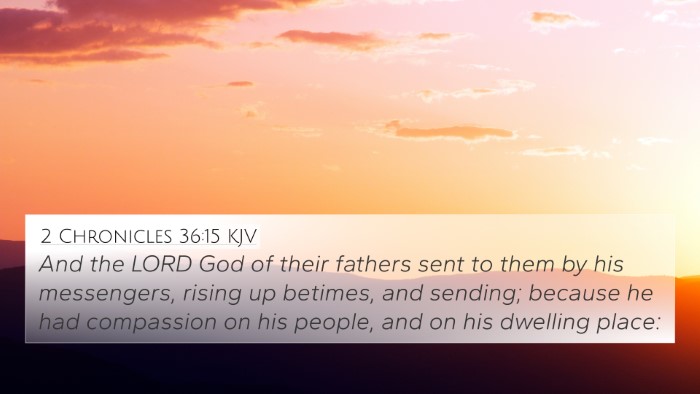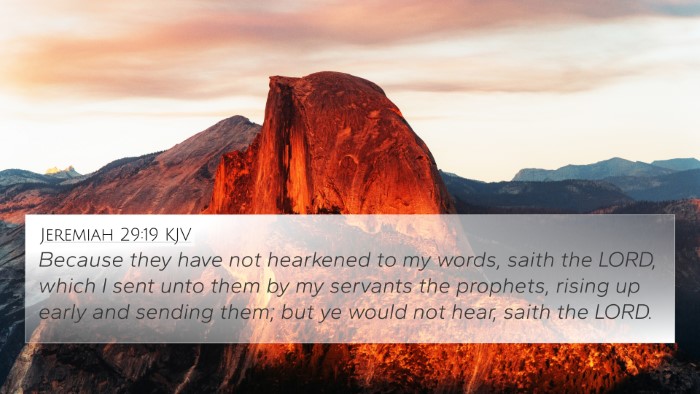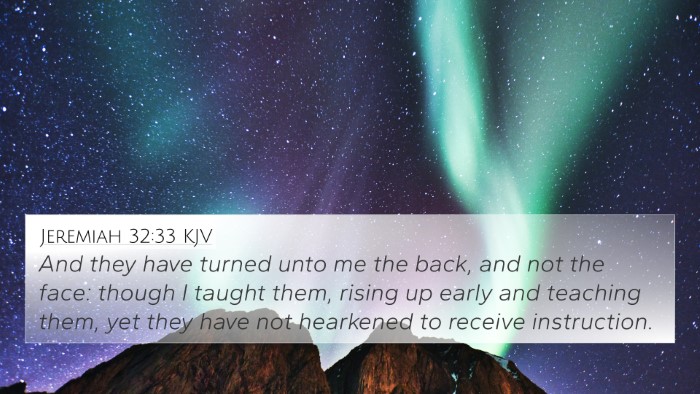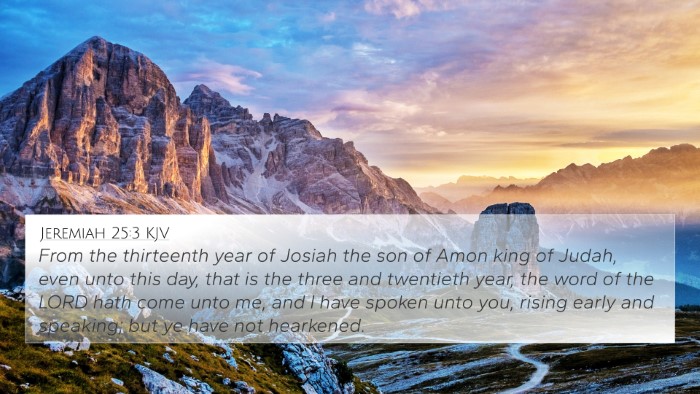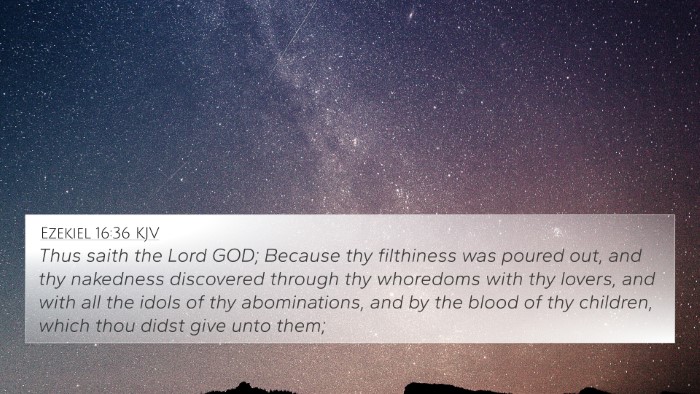Understanding Jeremiah 44:4
Verse: Jeremiah 44:4 - "And yet I sent unto you all my servants the prophets, rising early and sending them, saying, Oh, do not this abominable thing that I hate."
Summary of Meaning
In Jeremiah 44:4, God, through the prophet Jeremiah, expresses His deep concern and frustration over the persistent idolatry of the people. Despite multiple warnings and the efforts of His prophets to redirect the hearts of the people towards Him, they continue to engage in practices that God abhors. This verse highlights God’s compassion as He repeatedly reaches out to His people, demonstrating His desire for their repentance and restoration.
Contextual Insight
This verse is set within the broader context of God’s judgment against the inhabitants of Judah, particularly after the fall of Jerusalem. The people, despite witnessing the consequences of their actions, remain unyielding in their pursuit of false gods. The warning through the prophets was meant to bring about a change in their hearts, but their obstinacy leads to dire consequences.
Commentary Insights
- Matthew Henry: Matthew Henry emphasizes God’s patience and persistent call to repentance. He notes that while God’s messengers were sent repeatedly, the hardness of heart in the people illustrates a tragic disregard for divine counsel. This reflects a broader theme of grace and mercy that pervades throughout scripture, even when met with rebellion.
- Albert Barnes: Barnes highlights the principle that God is just in His dealings. The phrase "do not this abominable thing" indicates that the worship of other gods was not only discouraged but identified as detestable in the sight of the Lord. Barnes sees this as a clear reflection of God’s character, emphasizing His holiness and righteousness.
- Adam Clarke: Clarke provides an analytical breakdown of the phrase 'do not this abominable thing', shedding light on the nature of idolatry and its implications for the covenant community. He argues that the severity of God’s warnings reflects the serious consequences of turning away from true worship.
Cross References
This verse connects with several others in the scripture that reinforce the themes of idolatry, divine warning, and the call to repentance:
- Isaiah 44:19: Discusses the foolishness of idol worship.
- Ezekiel 8:17: Addresses the abominations committed by the people of Israel.
- Jeremiah 35:15: Illustrates God's persistent calling to His people.
- 2 Chronicles 36:15-16: Describes how God sent messengers to His people, only to be ignored.
- Hosea 11:2: Explains Israel’s tendency to turn away from God despite His loving calls.
- Acts 7:42-43: Reflects on the Israelites' history of turning to idols.
- Romans 1:18-23: Discusses the wrath of God revealed against ungodliness and the consequences of idolatry.
Thematic Connections
The themes of God's enduring patience and the consequences of idolatrous actions are found throughout both the Old and New Testaments. The juxtaposition of divine mercy and human stubbornness presents a clear call to examine our own hearts and the idols we may harbor. The connections between these verses not only illustrate the all-encompassing nature of God’s sovereignty but also the need for a humble, repentant posture before Him.
Conclusion
Jeremiah 44:4 serves as a profound reminder of the complexity of the relationship between God and His people. It challenges modern readers to reflect on what it means to worship the true God and to heed His call against the things that are contrary to His nature. In reading this verse alongside the cross-references, the continuity of God’s message through scripture becomes evident, urging believers to seek a deeper understanding through cross-referencing biblical texts and engaging with the thematic connections that shape our understanding of God’s word.
Further Study Suggestions
For those engaging deeply with this verse, utilizing tools for Bible cross-referencing can unveil richer meanings and connections. Consider exploring:
- Bible concordance: A resource to find where terms and themes recur throughout scripture.
- Bible cross-reference guide: A systemized tool to help identify relationships between different parts of the Bible.
- Cross-referencing Bible study methods: Approaches for systematically studying scripture through its interconnectedness.
